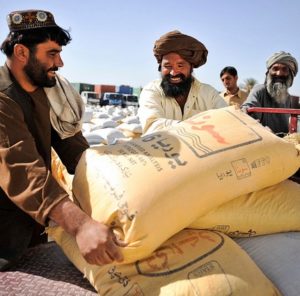Hilary Footitt discusses the seminar ‘Translating Development’ held at the IMLR in October 2017
What happens when you bring translators working in development NGOs together with academics in Translation Studies, and MA Translation Degree course tutors? The Translating Development seminar on the 12th October 2017 at the IMLR was an opportunity to find out.
The discussion started off with translators in NGOs talking openly about their work – Alberto Sanz Martins from OxfamGB, Verity Leonard Hill from Save the Children, Jessica Matthews, Alliance Development Coordinator in Family for Every Child, and Patricia Sommer, a freelance translator with several large NGOs. Presenters spoke about the challenges of managing Translation Services in large and complex NGOs whose work could span over 90 countries, and the language problematics of sharing knowledge and practice across global partnerships. A major challenge is the overall development context in which language and communication are seldom included as standard parts of the influential monitoring and evaluation procedures which large institutional/government donors typically require. Translators talked about having to actively advocate for translation within their organisations, working alongside colleagues to raise awareness of the key role of languages in achieving development objectives.
The academic panellists (Alexa Alfer from the University of Westminster, Christina Schaeffner from Aston University, Jane Woodin from Sheffield, Jonathan Evans from Portsmouth, Myriam Salama-Carr and Rebecca Tipton from Manchester, and Sarah Griffin-Mason, Chair of ITI) talked about the complexity of the ‘language mediated listening’ in which development NGOs are engaged, and asked questions about the balance of translated material from and into English. To what extent, they wondered, does existing literature on translation and globalisation help explore the issue of development translation? Does the very context of globalisation blur any possible boundaries between translating development and translating other types of dynamics and power relations? The translators as agents – affected by the sometimes traumatic material they might be asked to translate, or finding themselves acting as advocates for translation within the NGO – echoed much recent academic work on the positionality of the language intermediary.
Throughout the different stages of the development cycle, NGO colleagues pointed out, NGO staff who are not trained translators are inevitably involved in language mediation. Seminar participants discussed what this fact implied for traditional constructions of language professionalisms. Was there a way in which the development world could begin to envisage the capacity building of translators and language services as integral parts of their sustainability initiatives?
Strongly emerging from the seminar was the sense of translators in development NGOs as being a creative community of practice which felt itself to have common needs and had already in some cases established informal networks of mutual support. Arguing for greater visibility for translation within the NGOs themselves – do translators have their own profiles on NGO websites? – and recognising language mediation as an integral part of development discourse and operations were seen as vital for the future.
Participants suggested building on the seminar and the connections it had created by establishing a more formal network of support for translators in development NGOs. Comments at the end on ‘Next Steps’ – ‘good to have the mix of translators, academics and NGOs’; ‘possibility of collaborating with universities’; ‘concrete actions to work jointly on research for priority topics’ – suggested that this dialogue between NGO translation practitioners and academics is a valuable one to continue.
Find out more information on the AHRC project The Listening Zones of NGOs: languages and cultural knowledge in development programmes
Hilary Footitt, Research Professor, University of Reading, and PI for the AHRC project ‘The Listening Zones of NGOs’
- 19.10.2010. Nad e Ali District Centre, wheat seed from the wheat seed distribution program is handed out to local farmers. ACT Imagery taken in Nad e Ali, Helmand Province, Afghanistan. Photo: SAC Neil Chapman (RAF)/MOD, Department for International Development (DFID), Creative Commons Attribution Licence CC by 2.0. https://www.flickr.com/photos/dfid/5732728333/

